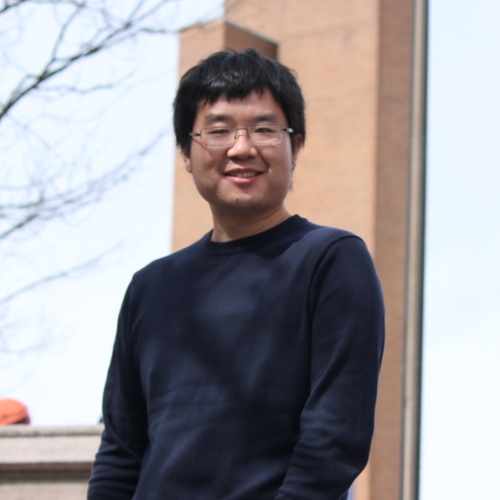ZTF Faces
This section features PhD students, postdocs and young faculty who are part of the global ZTF collaboration.
Sheng Yang
Postdoctoral fellow, OKC, University of Stockholm, Sweden
Where was your starting point and how did you discover astronomy?
I come from a very small town named 'Hong Hu' in the central part of China. In Chinese, 'Hu' means lake, so my hometown was aside a big lake. I spent my undergraduate life in the Beijing Normal University and the Chinese academy of Science. After getting my master degree in 2015, I got fundings to support my PhD study in the observatory of Padova, Italy. After the first year, I spent the following one year and a half in the UC Davis, California. I finally got my PhD degree from the university of Padova in 2018, and continue working in the Padova supernova group as a postdoc researcher for one more year. Then I moved to Stockholm University as a postdoc researcher where I am now.
How I came to astronomy is a long story. I’ve studied physics when I was an undergraduate. Before my bachelor defence, I've tried several topics from particle physics to atomic physics. I finally chose astronomy due to a very interesting talk. My bachelor defence was then about Gamma ray burst afterglow modelling. Afterwards when I started my master career, I decided to research on cosmology since I thought it's super cool after another talk. After talking with my tutor, my master project was to use quasars from the SDSS survey as tracers to probe the Large Scale Structure of the universe, and using its angular power spectra as implications to constrain the primordial non-gaussianity. However, it turns out that I didn't have too much fun with this project. Meanwhile, I spent several time to help observe extragalactic transients for other groups, which seems more interesting to me. Therefore, once I saw the PhD advertisement from the Padova supernova group, I decided to apply and finally I got it. My PhD topic is about the gravitational wave counterpart search, and my main work is to make pipelines for the observing strategy, data reduction, and machine learning staff for VLT survey telescope, PROMPT and Asiago Schmidt telescope. An impressive moment of my graduate career is when I visited UC Davis, we provided the independent discovery of the Kilonova, AT2017gfo, which inspires me a lot, and strengthened my confidence to work in transients.
I knew PTF from long long ago, since it's very famous in our field. Everyday, I will receive GCNs, Astronotes, ATels, etc, PTF/ZTF is always the main source to provide them. So one day by chance I saw an advertisement posted by Jesper in the ENGRAVE slack channel, I decided to contact him without any hesitation.
What are you playing with in the ZTF playground?
My first attempt within ZTF is to go over historic ZTF data via Ampel, define a set of potential kilonova candidates for a rate study or hints for future multi-messenger counterpart searches. However due to the pandemic, the project is postponed a bit. Meanwhile, I'm also interested in studying peculiar supernovae events, especially those with core collapse origins, e.g. an iPTF14hls alike SN 2020faa (arXiv:2009.07270), an underluminous Type IIP SN 2020cxd (arXiv:2107.13439), etc. Recently, I started to work on a sample study with Ib and Ic supernovae defined by the ZTF bright transient survey. Part of our results are now published in arXiv:2109.14339, and more results of explosion mechanisms and host properties are still ongoing.
Where do you want to steer your rocket in the future?
For my future career, first of all, I hope I can have my own telescope and spectrograph, which are fully robotic. I would like to enable them go for peculiar transients, such as kilonovae, supernova luminous supernovae, TDEs, ILOTS, etc. I'm also keen on big data and artificial intelligence. I hope in the future, with ZTF/LSST/etc, and a bunch of followup facilities, I would have chances to work on a big dataset of rare transients in multiple messenger channels.
If you were not an astronomer, what would you be?
like playing basketball, so if I'm not only not an astronomer, but also taller and stronger enough, my dream work is to become a professional basketball player like Kobe Bryant. But if I'm still with current body, I will probably become a researcher in other physical fields, or a civil servant, or maybe a chef since I like cooking a lot.
A book that shook your worldview?
Well, I like reading science fictions, and in principle every of them will influence my worldview. Among them, 'The Three-Body Problem' by Cixin Liu influence me a lot, but I would say it recreates my worldview, instead of shake.
If you’ve had a bad day at work, you will….
I will close my computer, stop thinking, then either go for some sports, or have a walk with my family, or just go enjoy a very boring TV show.
